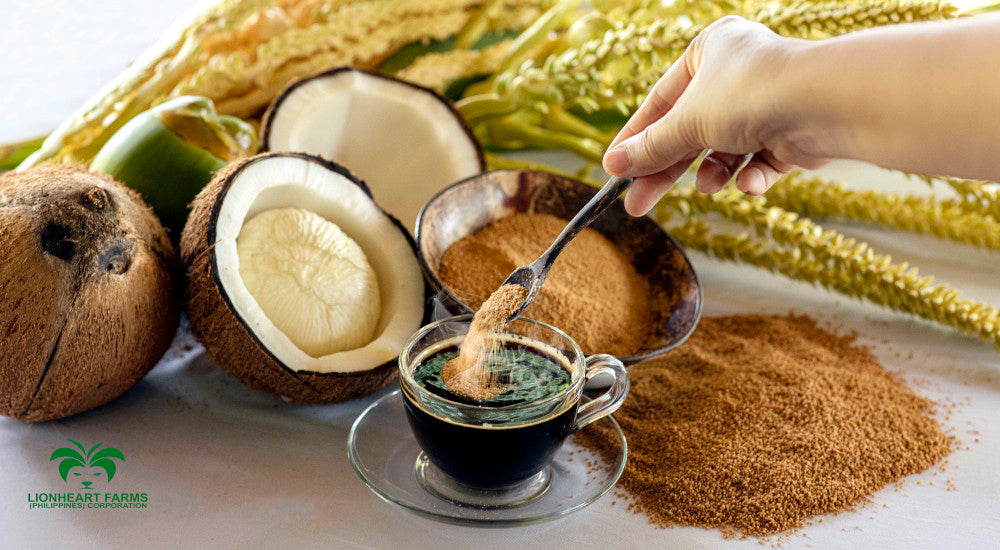
Over the past several years, coconut products have grown in popularity in the Western world. From organic coconut water and virgin coconut oil to coconut-based shampoos, many brands are turning to this tropical ingredient in their sustainable products — and much of it comes from the Philippines.
In fact, according to Christopher Ilagan — the Corporate Affairs Director for Cargill, who leads the Philippines Partnership for Sustainable Agriculture’s Coconut Working Group — coconut has become a major economic driver in the country.
“We have 3.5 million farmers and 25 million direct and indirect jobs; and coconuts are the third-largest crop by production volume,” Ilagan told Sustainable Brands®.
However, there are several challenges. Coconut trees across the country are aging and, according to Ilagan, producing only a fraction of their potential. Lack of income is also leading many farmers to encourage their children to move to the cities and pursue other careers.
“The average age of the Filipino farmer is 57, and probably older for coconut farmers,” Ilagan said. “We need to think about, how do we keep the talent within the coconut sector?”
In some cases, poverty is leading to a higher risk of exploitation or even human trafficking — showing the dire consequences of economic underdevelopment. But two ethical coconut companies are working to tackle this head on by creating new, community-centric models for producing coconuts — ensuring both a supply of sustainable coconut for their products, but also better livelihoods for farmers and workers.
Lionheart Farms
Lionheart Farms was founded by food industry exec Christian Moeller and former investment banker Anders Haagen in 2015, after the two saw a real need for a better way to grow and produce coconut products. Moeller, during his initial field visits, saw how the current model was exploiting farmers — forcing them to grow for low prices and giving them no opportunity to benefit from
“Farmers are being treated only as a commodity supplier; and that’s why you have these structural challenges,” Moeller told SB. “Aging trees, no replanting, income levels below subsistence. Farmers are collapsing.”
Lionheart Farms created a more integrated model, generating revenue from higher-value coconut products. The company created a partnership with an indigenous community on the island of Palawan, renting their land for 50 years. In exchange, Moeller’s team helps bring in investment and access to global markets while providing jobs, ownership and other opportunities.
“Every family from the community that contributes gets to have at least one job; and we give a share of the harvest value. We also offer community programs focused on education and medical assistance,” Moeller says.
Today, Lionheart now has 3,500 hectares of coconut farm in 20 50-hectare plots surrounded by natural forests — designed in a way to allow for biodiversity corridors on the land. All coconut processing is done in a factory that was built on site, not in faraway factories; the factory also mostly employs locals — allowing for greater income opportunities.
In fact, Lionheart has adapted its business model to integrate with the traditional values of the Palawan indigenous communities — including putting tribal elders on their board and ensuring that local community members are not only present at every meeting, but that decisions are made collectively.
“In the Palawan cultural tradition, everyone has a right to come to a meeting,” Moeller explains, adding that this was unlike any other business he’d worked on; “but in the end, it has been helpful in terms of transparency and trust.”
Notably, Lionheart Farms benefits the communities by providing a path to producing the higher-value coconut products growing in popularity in shelves in the US and Europe. In the Philippines, the most commonly produced product is what is called RBD (Refined, Bleached, and Deodorized) coconut oil — a processed product made from copra (dried coconut meat) that can be easily transported without the need for refrigeration or special equipment. Filipino traders play a key role in collecting whole coconuts and copra to sell to local and global trading companies. It’s cheap and comparable to any other vegetable oil.
However, Lionheart Farms does not produce RBD coconut oil. Instead, Lionheart produces coconut nectar, sugar and aminos.
“Our model works because harvesting the coconut and turning it into these high-value products [is] a good investment,” says Anders Haagen, Lionheart’s other co-founder.
Creating truly sustainable models that involve local communities is a serious and often challenging commitment. But, as Lionheart Farms shows, the benefits can be tremendous — both for the business and those in long-underserved, rural growing regions.
This excerpt was originally published at Sustainable Brands on May 29, 2023.

We are an indigenous landowner family clan group from Karkar Coconut infested Island, Sumkar District, Madang Province, Papua New Guinea looking for potential company to invest in our village and Island to engage with us in downstream processing of coconuts into finished products and we can market them
Currently we intend to venture into fuels sourcing and supply to meet the demands of 100 Outboat Motors to raise capitals
Contact our local consultancy services firm for more information
Barnex Resource Management
WhatsApp (+675)83364967/83883607/73791923/72252565